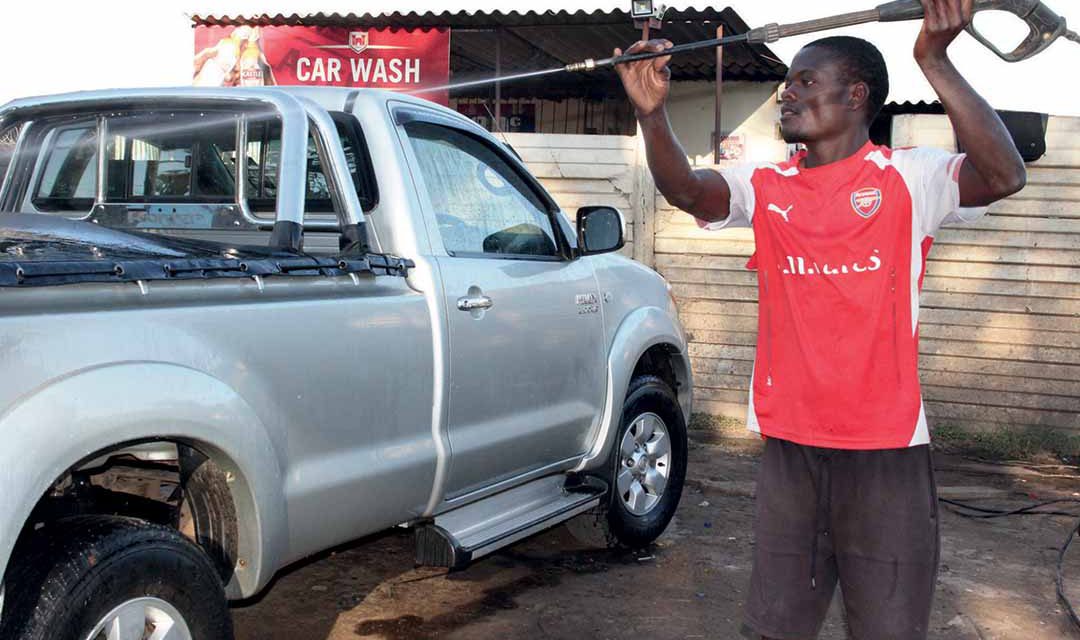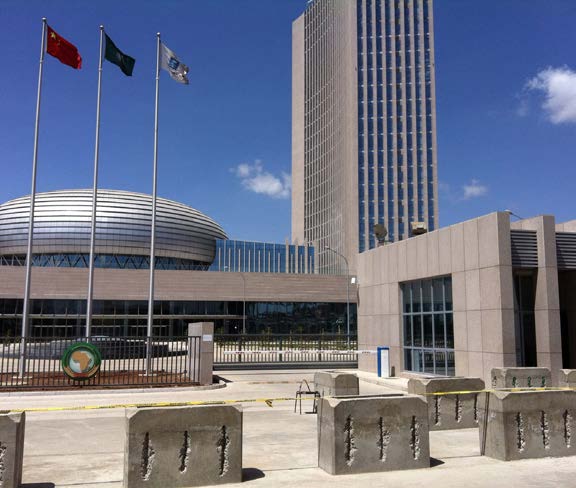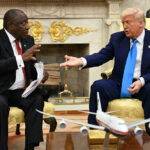South Africa: drive into Africa
Many assume that South African businesses are a natural fit for other markets on the continent, but experience is showing otherwise
By Peter De Ionno
For South African business, driven in part by a stagnating domestic economy likely to return growth of 0.8% at best in 2016, a bigger future lies north of the Limpopo, where growth in sub-Saharan economies is expected to average 4.5%. The World Bank’s latest South African GDP growth prediction is the lowest since 2009. That too could tumble over the precipice if predicted downgrades by international ratings agencies come to pass, turning the country’s investment paper into junk and prompting the slump into a recession. No wonder then that South African business is spending billions looking for new markets. But Africa is not a single, unitary investment destination. It includes 55 countries, 1.2 billion people speaking 2,000 languages and dialects, and a jigsaw of markets and jurisdictions, each shaped by different histories and cultures with economies regulated by myriad regulations and customs.
South African businesses trekking north must learn to deal with business systems, mainly informal, and legal codes that are not only unfamiliar, but part of countries where the economic landscape can be destabilised by terrorism and ethnic conflict. Analysts have observed that the barriers and obstacles to trade between African countries, particularly at border crossings where ever-longer queues of trucks can be delayed for days on end, are markedly more difficult to surmount than connections to markets in developed countries. Overlaying these new markets with templates based on high-level models such as South Africa’s King Codes on governance, as well as strategies that have historically proven profitable in South Africa— with its unique demographics, wealth and high levels of development concentrated in the top 20%—just won’t work.
While all agree that best practice corporate governance is the only path to ensuring that Africa’s economy grows sustainably and meets the needs of its people, it is honoured more in the breach than in the observance in many parts of the continent. The big South African formal retailers have had varying levels of success with their frontier forays, which have seen them open some 1,500 stores. Shoprite is the frontrunner, having started beyond South Africa in 1995. It now operates more than 320 stores in 14 countries, which last year generated R19 billion ($1.21 billion) in sales, or 16.4% of the group’s turnover. Shoprite founder, Whitey Basson, declined to be interviewed for this article, but his online profile says he was motivated by a desire to win the approval of African leaders by enhancing food security in major African cities. The firm’s first store in Lusaka, Zambia, at first imported all merchandise including fresh produce, arousing local anger. Shoprite had to develop local suppliers of fresh goods where possible.
Now, some 80% of goods on Shoprite’s African shelves come from non-South African sources—another indication of the ease of external connections over intra- African trade, which the Industrial Development Corporation (IDC) says averaged only 10% between 2007 and 2012. An early venture into Egypt failed because of red tape and restrictive legislation, but the greatest impediment to African expansion—as experienced by other retailers too—was the lack of suitable sites for its stores. Shoprite’s solution has been to build its own shopping centres, with its supermarkets as the anchor. Shoprite Holdings is Africa’s largest retailer and is listed on both the Namibian and Zambian stock exchanges in addition to its main listing on the Johannesburg Stock Exchange (JSE). In the 12 months to June last year, Shoprite said it had invested R1.5 billion ($95.9 million) in its African expansion, opening another 30 supermarkets, mostly in Angola and Nigeria. That was more than double its R697 million ($44.57 million) South African expansion budget.
Another South African company, Woolworths, an upmarket retailer, operates more than 65 stores in 11 African countries. It took a knock in 2013, when it pulled out of Nigeria after its stores failed to connect with local customers. The lack of suitable shopping malls also crimped its expansion plans. Later, its R20 billion ($1.28 billion) acquisition of the David Jones department stores in Australia signalled a turn away from Africa. Sales on the continent account for about 5% of its business. Mr Price, a value fashion retailer, has done better, with about 9% of its business coming from its African expansion, notably in Ghana. Much of its success is attributed to its cash-based model in countries where credit financing is relatively undeveloped. Martyn Davies, managing director of Emerging Markets & Africa at Deloitte Frontier Advisory, offers a warning to businesses moving operations into Africa.
Although adherence to the highest standards of corporate governance remains best practice, there are many markets where that ideal may be impossible to achieve and pragmatism trumps all else, he says. Mr Davies, who has advised more than 30 of the JSE’s top 100 listed firms, says the fall of some African countries into states of “ungovernment” means that principles of good governance remain simply that: good ideas that cannot be applied in the face of lawlessness. In Nigeria, the local arm of South African-based telecommunications multinational, MTN Group, is facing the imposition of a record $15.6 billion (R245 billion) fine for failing to disconnect 5.1 million unregistered and improperly-registered SIM cards as required by the regulating Nigerian Communications Commission (NCC).
MTN, Africa’s biggest mobile operator, announced that its 2015 results had taken a 51% hit on its full-year profit, with its headline earnings per share (HEPS) falling to 746 cents as the company set aside R9.29 billion (about $590 million) towards its fine obligations. It would be easy to see this as a spectacular corporate governance failure and an own goal by MTN Nigeria. After all, MTN cannot claim ignorance that its failure to properly register SIM cards would render it liable for a penalty of Naira 200,000 (about $1,000) per unregistered subscriber. In March, two weeks before the Nigerian House of Representatives trebled the original fine imposed after MTN missed a mid-2015 deadline, President Muhammadu Buhari said MTN had cost people their lives, and fuelled the Boko Haram insurgency in north-eastern Nigeria by failing to disconnect the unregistered users.
MTN did not respond to requests for comment. Mr Davies says that MTN had no choice but to accept being penalised for breaching the regulations, although the size of the fine makes the case unique. “In…Nigeria there are a lot of arbitrary impositions on business. Companies like MTN are simply seen as cash cows to be milked.” With the economy in decline, this kind of pressure on business will only increase. He also questions whether anybody can run a business in Nigeria or Angola and maintain the highest standards of corporate governance, while navigating the day-to-day demands of rampant corruption. “Standards of governance must be set by the government of a particular country, but unless they are enforced by strong internal independent institutions they won’t mean very much,” says Mr Davies. The kinds of challenges facing businesses in such countries range from impositions on logistics that can hold to ransom imports of equipment and stock deliveries, to the more personal and visceral, where executives or even their families are caught up in roadblocks and the payment of a bribe means the difference between safe passage and detention, or worse.
Every business should aim to adhere to the highest ethical standards, he says, while upholding the laws in all the jurisdictions in which they operate and maintaining responsible and transparent relations with their customers, suppliers, workers and communities. In some countries, however, this remains impossible. “Most foreign business operators will find that pragmatism is the best policy to deal with difficult local conditions if it becomes a matter of survival”, he suggests. Mr Davies adds that South Africa’s reputation as a beacon of corporate governance based on the adoption of the King Codes—which outline principles of leadership, sustainability and corporate citizenship—as well as high international regard for the JSE and the country’s well-regulated, technically advanced banking sector, is fading. “Issues of state capture point to cracks in our government’s commitment to good governance.
As in other countries, difficult economic times go together with standards slipping,” he says. Pressed to identify the best and worst countries for across-the-board adherence to corporate governance principles, Mr Davies says South Africa still leads the continent, with Botswana, Mauritius, Rwanda and Kenya following. On the downside, he lists Nigeria, Chad, Niger, Sudan, Angola and Congo as countries where the challenges and failures in the application of best practice corporate governance, all too frequently, outweigh the wins.
Peter de Ionno is a Johannesburg-based journalist. He was the deputy editor of Business Report, and has written for The Star, Sunday Times, City Press and contributed to numerous magazines.












